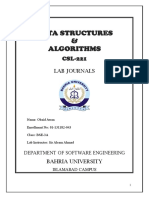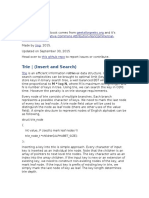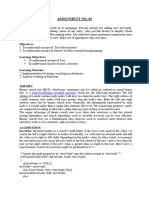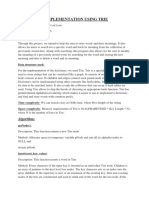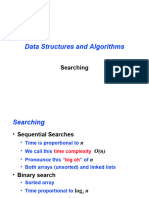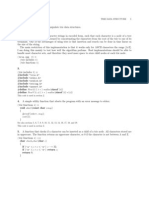0% found this document useful (0 votes)
13 views5 pagesComputer Science CPP Concepts
The document discusses key computer science concepts using C++ examples, focusing on asymptotic notation for algorithm efficiency, recursion, and the comparison between arrays and linked lists. It highlights the advantages and limitations of recursion, and presents the Trie data structure as the best choice for dictionary applications due to its fast lookup capabilities. Additionally, it briefly mentions an alternative data structure, the hash map, for quick lookups.
Uploaded by
shreyabg890Copyright
© © All Rights Reserved
We take content rights seriously. If you suspect this is your content, claim it here.
Available Formats
Download as PDF, TXT or read online on Scribd
0% found this document useful (0 votes)
13 views5 pagesComputer Science CPP Concepts
The document discusses key computer science concepts using C++ examples, focusing on asymptotic notation for algorithm efficiency, recursion, and the comparison between arrays and linked lists. It highlights the advantages and limitations of recursion, and presents the Trie data structure as the best choice for dictionary applications due to its fast lookup capabilities. Additionally, it briefly mentions an alternative data structure, the hash map, for quick lookups.
Uploaded by
shreyabg890Copyright
© © All Rights Reserved
We take content rights seriously. If you suspect this is your content, claim it here.
Available Formats
Download as PDF, TXT or read online on Scribd
/ 5





